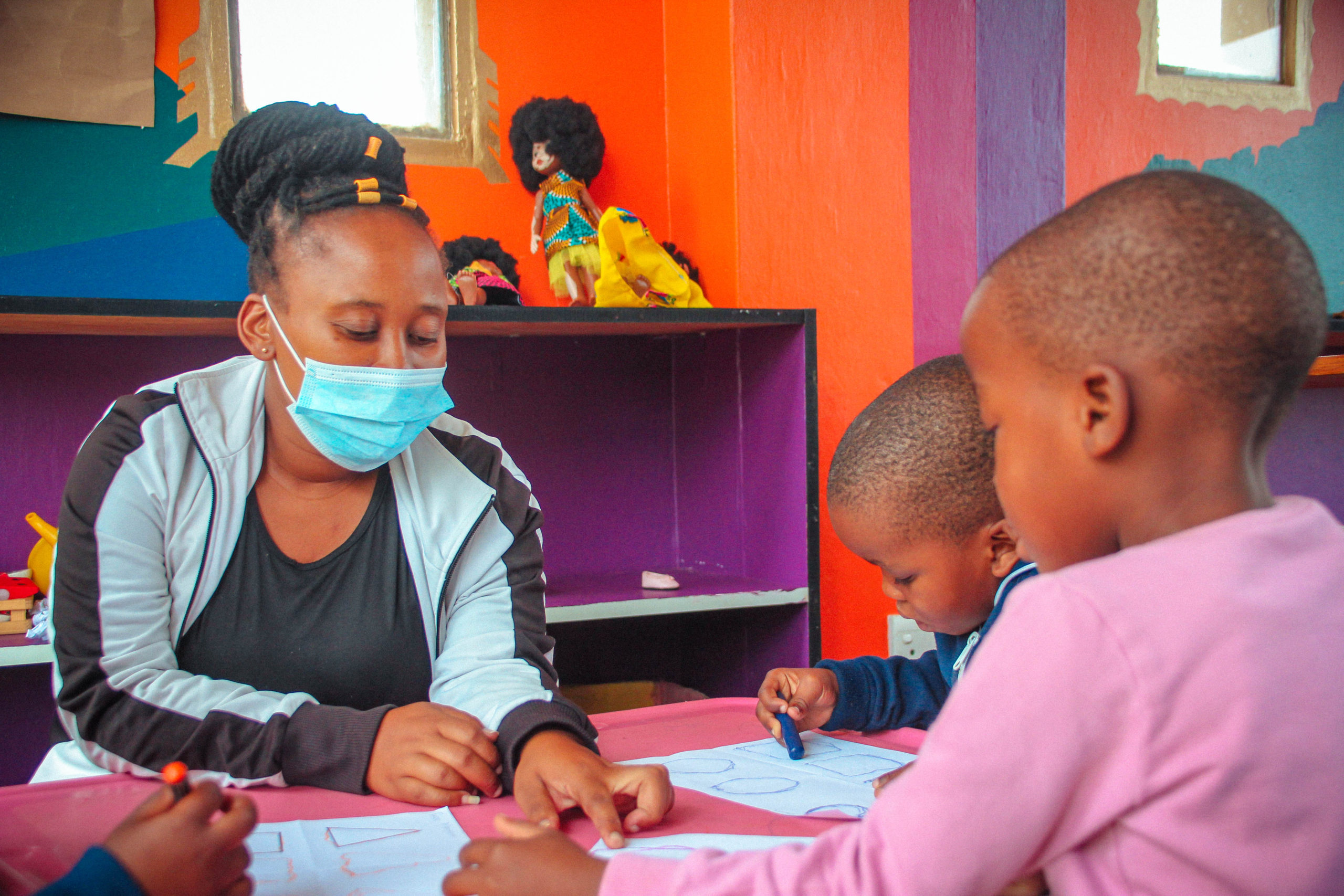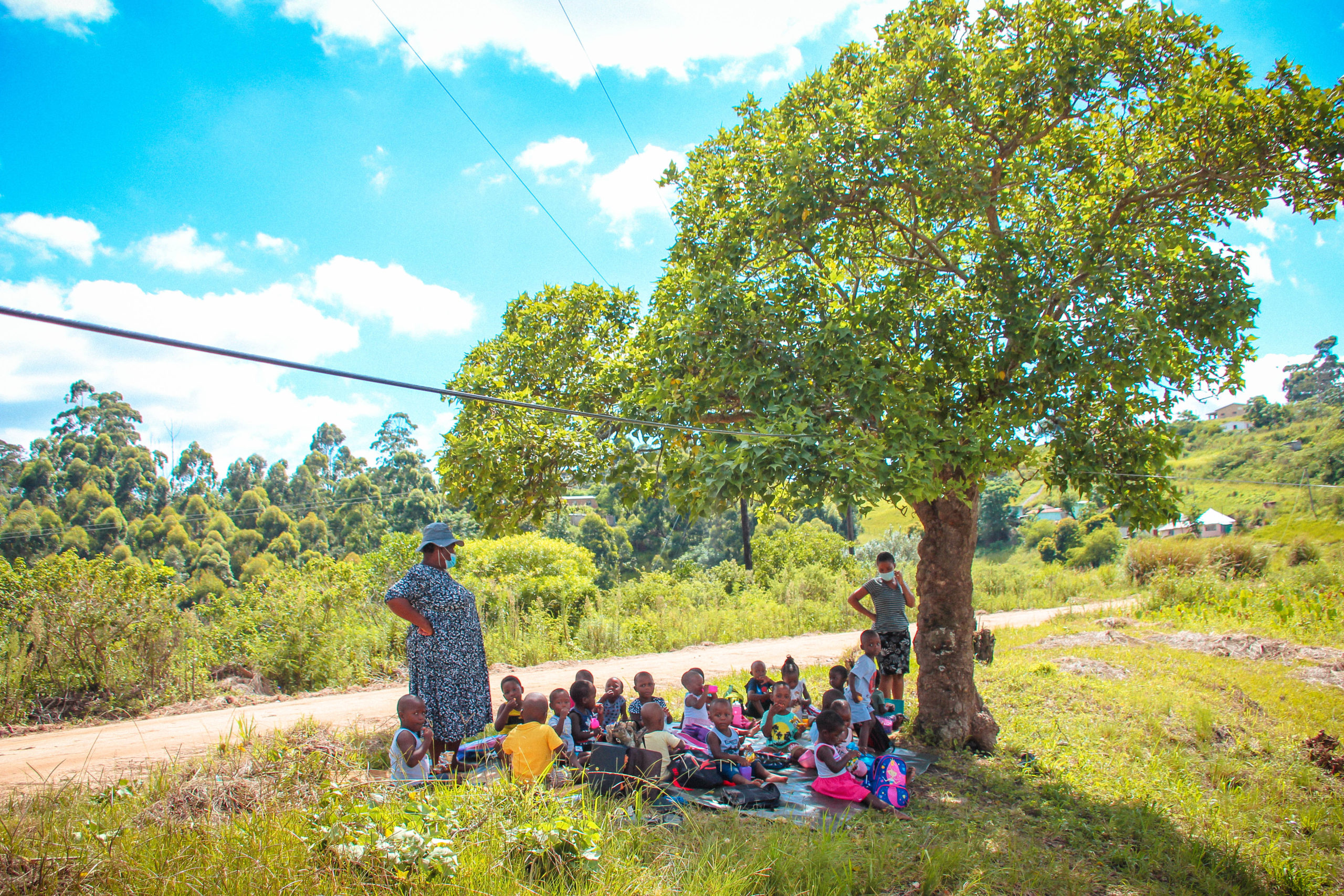South Africa has 11 official languages and isiZulu is the language that this predominantly spoken in the Mtwalume area, where Thanda is based.
The main language of instruction at Thanda is isiZulu. Research shows that children whose early education is in their mother tongue tend to do better, educationally, in later years. It is suggested that, when children learn in their mother tongue first, it validates their cultural or ethnic identity and underscores the importance of their worldview.
At Thanda, almost all of our facilitators are hired from within our community. Our team members working directly with children are native isiZulu speakers and can therefore offer instruction in our participants’ home language. In addition, we value the creation of a sustainable local economy and hiring from within the community is an important aspect of this.

While instruction in a child’s mother tongue is valuable, there is also much research that has shown that multilingualism is extremely advantageous to the developing child’s brain. This is why we also include English instruction from as early as our Early Learning Initiative.
It has been seen that bilingual infants are more advanced than monolingual infants raised in similar environments both in language-related skills and in other cognitive skills like attention, inhibition and switching. Researchers believe that this might be because bilingual children are constantly exercising their cognitive skills every time they speak. They need to be paying attention to which language they are currently speaking and be able to switch from one language to the next depending on who they are talking to. This has benefits into adult life too as studies show that bilingual adults show behavioural symptoms of Alzheimer’s about 5 years later than monolingual adults even though imaging of their brains shows similar progression of the disease. What this suggests is that, bilingual adults are able to compensate for early symptoms of the disease through the cognitive skills they’ve been practicing throughout their life.
Other benefits of multilingualism:
- Linguistic and Cultural Tolerance: Learning more than one language encourages respect and tolerance of different cultures and nationalities and inspires a peaceful and harmonious global existence.
- Creativity: When the brain is communicating in multiple languages, it learns to process thoughts in a similar way to when it is forming creative and original thoughts. Exercising this aspect of the brain increases person’s capacity for creative thought.
- Job Security: Being able to communicate fluently with people from different backgrounds and communities makes a person an asset in the workplace.
- Global Connectedness: Learning multiple languages opens borders and breaks barriers by allowing communication with people across the world. This helps expand a person’s mind as their worldview shifts and is constantly challenged by the new people they meet and interact with.
The value of multilingualism is clear. Which new language will you learn? And what will you encourage in your children?





